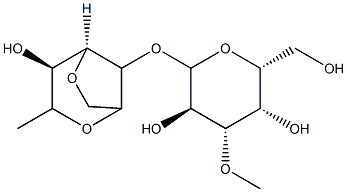Soypeptone , For microorganism , 73049-73-7
Synonym(s):
Tryptose;Peptone from animal source;Peptone from animal tissue;Peptone from bovine meat;Peptone from casein
CAS NO.:73049-73-7
Empirical Formula: C13H24O4
Molecular Weight: 244.327
MDL number: MFCD00148122
EINECS: 615-895-9
| Pack Size | Price | Stock | Quantity |
| 100g | RMB79.20 | In Stock |
|
| 500g | RMB167.20 | In Stock |
|
| 2.5kg | RMB559.20 | In Stock |
|
| others | Enquire |
PRODUCT Properties
| storage temp. | room temp |
| solubility | H2O: 50 mg/mL |
| form | powder |
| color | Dark cream powder |
| Odor | Odorless |
| PH | 6.5-7.5 (2% in H2O) |
| biological source | Porcine pancreas bovine skeletal muscle ( ) soybean |
| Water Solubility | Soluble in water. Insoluble in alcohol. |
| Sensitive | Moisture Sensitive & Hygroscopic |
| InChI | InChI=1S/C13H24O4/c1-6-13(3,7-2)9-8-10(11(14)16-4)12(15)17-5/h10H,6-9H2,1-5H3 |
| InChIKey | AIUDWMLXCFRVDR-UHFFFAOYSA-N |
| SMILES | C(OC)(=O)C(CCC(CC)(C)CC)C(OC)=O |
| EPA Substance Registry System | Peptones (73049-73-7) |
Description and Uses
Peptone, a protein decomposition product, is made by an incomplete hydrolysis process of the protein originating from beef, casein, milk powder, gelatin, soy protein, silk protein, fibrin, etc. The commercially available products are mainly light yellow to brown yellow powder. Its molecular weight is between proteose and peptide (about 2000Da). Proteins can also form peptones after being hydrolyzed by acids, alkalis or proteases. Different sources of protein and different hydrolysis conditions would make the composition of hydrolysate vary widely, so peptone is often a complex mixture of peptides. In addition to amino acids, peptone also includes many other components so that it can provide carbon sources, nitrogen sources, growth factors and other nutrients for biological cultivation and fermentation.
Peptone is used in nutrient media for growing bacteria and fungiMeat Peptone is used for routine and mass scale cultivation of organisms, which is utilized for the production of antibiotics, enzymes and vitamin production. It is also useful for the cultivation of a variety of microorganisms. Further, it is used in culture media, industry fermentation and the pharmaceutical industry.
Safety
| WGK Germany | 3 |
| F | 3 |
| TSCA | Yes |
| HS Code | 35040010 |


